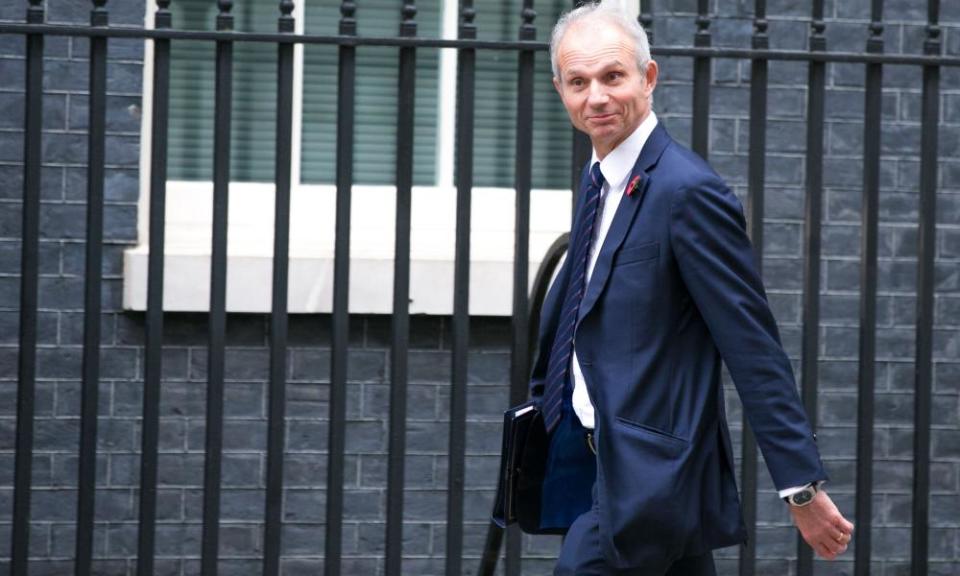Minister seeks to scotch claims of Brexit power grab

The Cabinet Office minister David Lidington will on Monday promise “a very big change” to a key Brexit bill in the hope of resolving the deadlock between London and the devolved administrations over what happens to powers being repatriated from Brussels.
In a speech in north Wales, Lidington will say “the vast majority of powers returning from Brussels will start off in Edinburgh, Cardiff and Belfast – and not in Whitehall”.
He will propose government amendments to that effect in the EU withdrawal bill, saying these will put “beyond doubt our commitment to a smooth and orderly departure from the EU, in a way that doesn’t just respect the devolution settlements, but strengthens and enhances them”.
But he will insist on the UK government retaining legislative control over certain aspects of lawmaking that are normally devolved because of the need to maintain “common UK frameworks” in areas such as agriculture.
The bill, which has cleared the Commons and is now in the Lords, will transfer existing EU law into UK law to ensure legal continuity, pending any decision by a UK government to start rewriting EU rules that it wants to change in the future.
The SNP-led Scottish government and the Labour-led Welsh government have both accused London of a power grab because the bill would ensure that, where the EU exercises powers over matters that are otherwise devolved, those powers would initially be transferred to London, and not to the devolved administrations. Northern Ireland is also affected but, with power sharing suspended, the main complaints have been coming from Edinburgh and Cardiff.
Ministers have been trying to negotiate a compromise, but the Scottish and Welsh governments remain unsatisfied and have been threatening not to give the bill legislative consent – a move that would not necessarily block the legislation, but would undermine faith in the devolution settlement.
Lidington, who is effectively Theresa May’s deputy, will say that he made a “considerable” offer to the devolved administrations in talks last week. Describing his plans for amendments saying there should be a presumption in favour of relevant EU powers being devolved, he will say: “Let’s be in no doubt: this would mean a very big change to the EU withdrawal bill that is before parliament and a significant step forward in these negotiations.”
But he will explain why the UK government wants to reserve some control over these policy areas. “Some powers are clearly related to the UK as a whole and will need to continue to apply in the same way across all four nations in order to protect consumers and businesses who buy and sell across the UK, in all parts of what we might call the United Kingdom’s common market,” he will say.
“That market is one of the fundamental expressions of the constitutional integrity that underpins our existence as a union.”
The government has not yet tabled its proposed amendments to the bill, but it will need to do so soon because the EU withdrawal bill is already being debated in committee in the Lords. Lidington is hoping to reach an agreement first and is expected to convene another meeting of the joint ministerial committee - the body comprising ministers from the UK government and the devolved administrations - this week or next week.
In his speech, Lidington will say that that preserving its “common market” makes the UK stronger. “Maintaining the common market of the United Kingdom will give us the heft to lead the charge for common regulatory standards at a global level. Having the right framework in place at home means we can be at the forefront of developing the new regulatory environment we need for the exciting technologies of tomorrow,” he will say.
“We want innovators and producers across Scotland, Wales, England and Northern Ireland to be able take get ahead of the curve and edge ahead of their global competitors.”

 Yahoo News
Yahoo News 